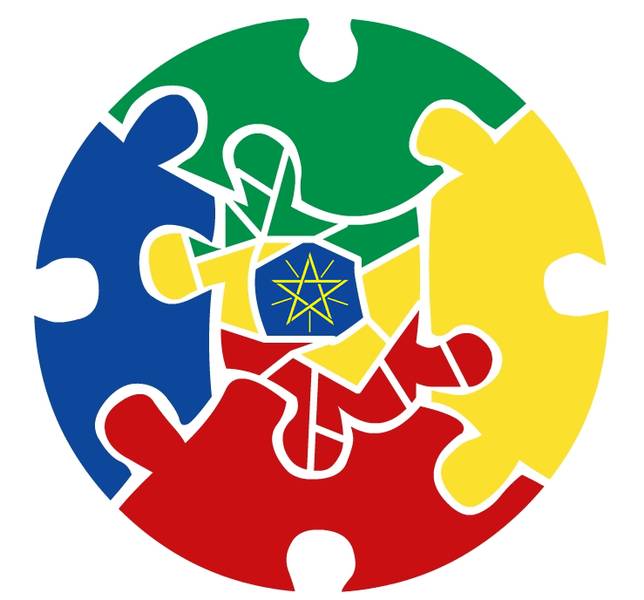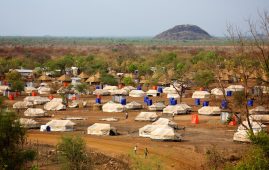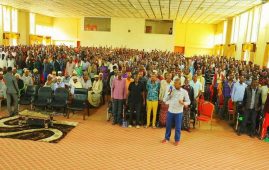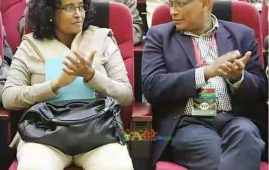As polling day approaches, the ruling party appears set to win by a landslide. Opposition parties could not yet get back to their election-2005 momentum, in which they enjoyed a sizable anti-EPRDF rally. Critics attribute this to the chilling effect of the crackdown of the urban violence, following vote-counting disputes of election 2005, and the enlargement of the ruling party. There are plethora of allegations of repression on the government. Such allegations cannot be dismissed out-of-hand, given the infancy of Ethiopia’s democracy and as it is expected of an African government by default. Nonetheless, the ruling party signed an electoral code of conduct and established a joint council with more than 90% of the opposition political parties, which have managed to solve their complaints amicably, at least, so far.
There are a few major parties, of course, which opt out from signing the code and joining the council, and running under a new coalition, ‘MEDREK’. The coalition claims that it is singled out for harassment by the ruling party. It may not be impossible to imagine a scenario where the ruling party bully a few parties while accommodating about 60 parties that joined the council, which includes former Chairman of CUD (‘‘Kinjit’’). Yet, it casts doubt on its likelihood and gravity of such harassments, if any. Thus, some cite the four-fold increase in the membership of the ruling party, and alleged channeling of entitlements, as a complementary factor.
There is a limit to the explanatory value of these theories, however. The government cannot buy off everyone. As the Vice-chair of MEDREK Gizachew Shiferaw said two weeks ago in Seattle,
“EPRDF may buy votes by paying out money to thousands of youths. But can it buy the votes of the about 14 million unemployed youths in the country?”
Moreover, the opposition movement is witnessing an unprecedented level of disarray. It is unable to rally even its core elements, as it used to, including the Ethiopian Diasporas in North America. Well-known opposition political figures and parties are officially in discord, unlike the past three elections when they were able to forge some sort of anti-EPRDF coalition. The fragmentation of the former CUD leaders into about a dozen factions, which continue to date, portrays the level of dissonance within the opposition movement. No sane political analyst would attribute this saga of the opposition solely to the acts of the ruling party.
EPRDF would explain it differently, however. The opposition movement in election 2005 was propelled by widespread mal-administration and economic problems. On which, the opposition capitalized by stirring-up nationalist and ethnic misgivings, according to the ruling party’s analysis. That, in turn, made them look popular and also encouraged the otherwise dissimilar opposition elements to stick together in the hope of regime-change. Thus, predictably, EPRDF will point out to improvements in administration and national economy to explain the dwindled support and disarray of the opposition and, more importantly, to explain its electoral victory, if it turns out as predicted.
Whatever the merit and the flaws of these arguments and counter-arguments may be, the findings of a recent survey by PEW Research Centre appear to vindicate some of the EPRDF claims, albeit partly.
Here are five of the findings of the recent survey by PEW Research Center.
1/ Optimism runs high…
According to the survey, most Ethiopians perceive improvement and are optimist about the future. The Ethiopian people are relatively more content with the state of the nation than ever. About 54% say that their lives are better today than five years ago (see chart 1 above), while 75% expect to see improvement in their lives in the next five years. (see chart 1 below)
Chart 1 – from page 56 of the report
2/ Perception of the nation’s economy and their status
About half of Ethiopians perceive their personal economic condition and that of the country positively.
48% describe their current economic situation as good(either either ‘very good’ or ‘somewhat good’)
43% describe the current economic situation in the country as good(either ‘very good’ or ‘somewhat good’)
Only about 20% of Ethiopians perceive either the national economy or their personal conditions situation as ‘very bad’.
3/ Sense of stability but worried about unemployment
Most Ethiopians are not very troubled by crime and conflicts. Only 30%, 19%, and 23% of the population consider crime, religious conflict and ethnic conflicts, respectively, as a ‘very big problem’. On the other hand, 70% of Ethiopians deem unemployment as a ‘very big problem’. Also, 40% say corrupted political leaders pose very big problem.
4/ Empowered or not feeling powerless
Unlike what many would expect, Ethiopians do not feel that powerless at all. About half of the population believe what they say about the government matters.
51% of disagreed with the statement “People like me don’t have any say about what the government does”, while 21% and 28% agree or ‘somewhat agree’, respectively. (see chart 2 below)
Chart 2
5. Subsistence
The findings of the survey with regard to food, medical expenses and clothing are not dismal.
BBC, on 15 April 2010, expressed its surprise as follows:
“…The survey also asked about material well-being in the world’s poorest continent. Not so long ago, Cameroon regularly topped surveys of champagne consumption per head. However, a shocking 71% of Cameroonians surveyed said there were times in the past year when they did not have enough money to buy food. In Ethiopia, which is commonly seen as a country struggling to feed itself, the rate was far lower – at 30% – the lowest of all countries surveyed….”
Moreover, only 39% said that there have been times during the last year when they didn’t have enough money to pay for medical and health care their family needed, while the rate is 35% with regard to clothing. (see chart 3 below)
Chart 3
Therefore…….,
This doesn’t mean Ethiopians think they are living in the happiest state of affairs. To begin with, most of the afore-stated findings are even divided. As the survey shows, 59% of Ethiopians do not see the general condition of the country as satisfactory and 40% consider corrupt political leaders as a very big problem. Therefore, one can safely contend there is a big deal of dissatisfaction that can propel an opposition movement. The problem is that the opposition campaign on a ‘regime-change’ platform, explicitly or implicitly, including re-writing the constitution and reorganizing the regions. Not to mention, the inclination of all the players of Ethiopian politics for confrontation rather than tolerance and compromise.
Nonetheless, it is evident that the public is not as disillusioned and pessimist, as it had been in the year 2005, and that may explain why the opposition is in disarray and couldn’t sell its ‘regime-change’ agenda this time around.
Daniel Berhane – April 25, 2010






